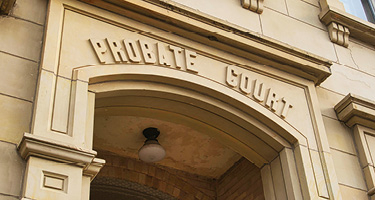A preliminary question following the death of a loved one is whether a probate estate (of some form) should be opened. Clients are sometimes surprised to learn that the opening of a probate estate is not always necessary or advisable. The decision to open an estate depends on the facts and circumstances existing at the time of the decedent’s death. A probate estate would most commonly need to be opened for one or more of the following reasons:
Transfer of Assets
Decedent’s often die with a variety of assets. Many assets pass by “non-probate transfers” which do not require the opening of an estate. For example, life insurance, investment accounts, and retirement accounts often have designated beneficiaries on the accounts and the proceeds of those accounts will be paid to the beneficiaries named in the beneficiary designations. Similarly, joint bank accounts or other property held with right of survivorship will transfer directly to the survivor(s) on the account or property upon the decedent’s death. Assets held in a revocable or other form of trust will also generally be considered non-probate assets subject to distribution in accordance with the terms of the trust. Accordingly, no probate estate is required to be opened to transfer any of these assets because their disposition is governed by contractual arrangements made with the respect to the particular asset.
Assets that do not fall within one of the categories named above are generally assets requiring some form of probate to be transferred. As such, if assets are not transferrable to a named beneficiary or survivor by some other means, a probate estate is generally required to be opened to transfer the assets to the estate beneficiaries or creditors of the estate in satisfaction of their claims. Only a duly appointed executor or administrator of a decedent’s estate will generally be permitted to access and distribute the applicable property, particularly if the assets are held at a financial institution.
Real property held solely in the name of the decedent generally is an exception to this rule. While the asset is held solely in the name of the decedent, real property is not considered a probate asset unless the property is needed to pay the claims of the estate. Accordingly, a full probate is generally not required if the decedent died owning only real property and his or her will leaves the real property outright to an identified beneficiary.
Filing of Claim
An interested party may have a claim against the decedent that they desire to pursue. North Carolina law provides special rules and time periods for the submission of a claim against a decedent’s estate. Accordingly, the claimant may need to petition for an estate to be opened in order to file their claim. For example, consider an instance where a decedent died with a credit card liability of $15,000.00 and assets held in a revocable trust of $100,000.00. The decedent’s heirs may believe that no probate needs to be opened as the assets in the trust pass outside of probate. However, the creditor may open an estate and file a claim thereby causing the executor or administrator to seek satisfaction of the claim from the assets of the trust. Of course, creditors come in a variety of forms and may include a surviving spouse that has not received his or her applicable share of the decedent’s probate and non-probate estate under North Carolina law.
Filing of Wrongful Death Action
If a decedent died under circumstances giving rise to a claim for wrongful death, a probate estate will need to be opened to pursue the claim. This is true even though the wrongful death proceeds are not distributable in accordance with a decedent’s will or generally subject to the claims of most creditors.
Tax Matters
In some instances, a probate estate will be opened to deal with certain tax matters, including income and wealth transfer tax matters. This can be avoided in many instances, but a decision should be made after consultation with qualified legal counsel.
Once a preliminary decision is made regarding the need to open an estate, it becomes necessary to determine the type of probate that will be utilized. North Carolina law provides several possible methods for transferring assets short of a full probate. The appropriate selection of methods should be made after consultation with qualified legal counsel.
About the author
Stephen Brown focuses his practice on business formation and structuring, wealth transfer planning, and litigation involving fiduciaries, trusts, estates and guardianships. If you have questions regarding whether or not to open a probate estate, please contact Stephen.




























